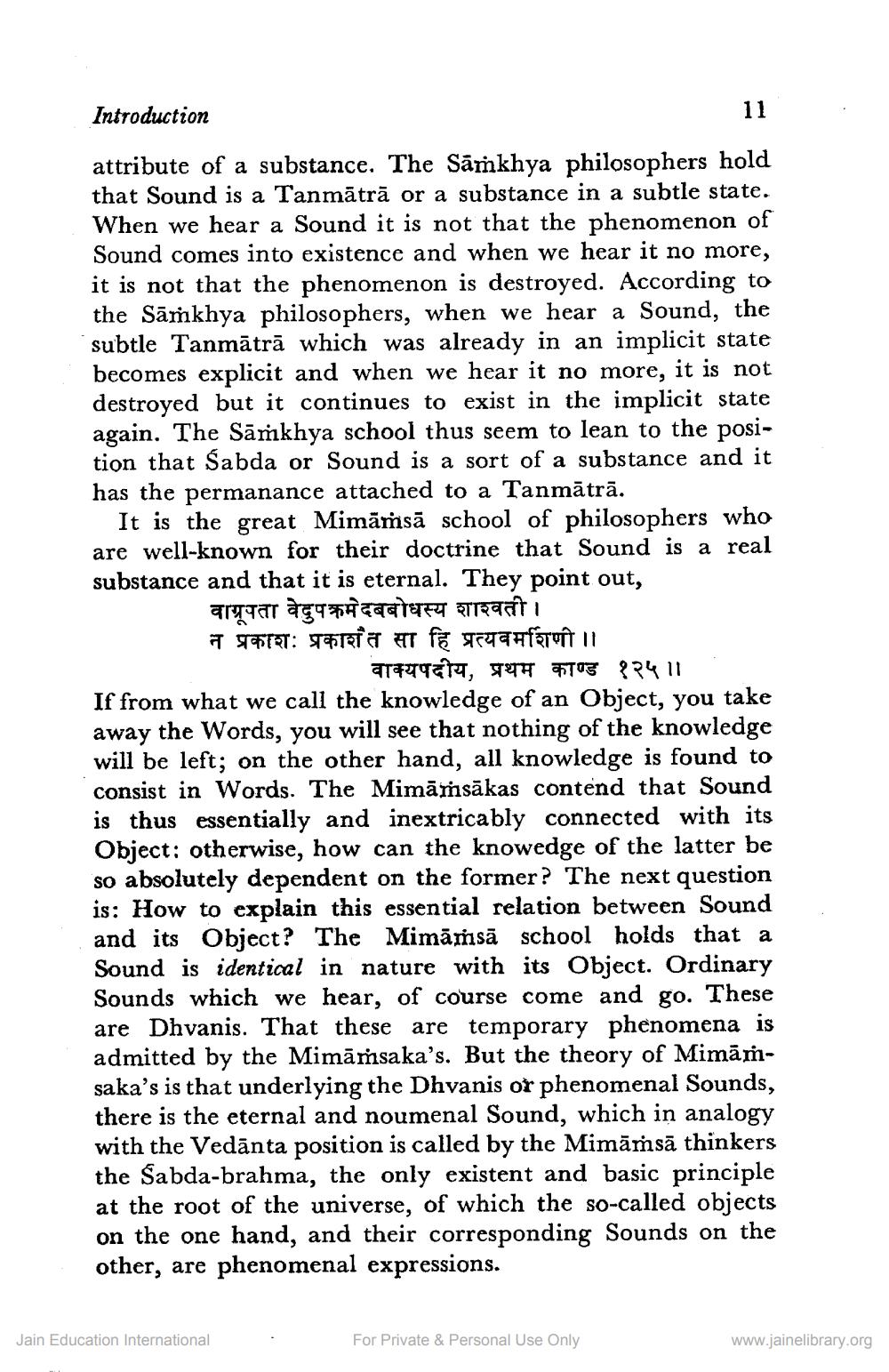________________
Introduction
11
attribute of a substance. The Samkhya philosophers hold that Sound is a Tanmātrā or a substance in a subtle state. When we hear a Sound it is not that the phenomenon of Sound comes into existence and when we hear it no more, it is not that the phenomenon is destroyed. According to the Sāmkhya philosophers, when we hear a Sound, the subtle Tanmātrā which was already in an implicit state becomes explicit and when we hear it no more, it is not destroyed but it continues to exist in the implicit state again. The Sāṁkhya school thus seem to lean to the position that Sabda or Sound is a sort of a substance and it has the permanance attached to a Tanmātrā.
It is the great Mimāṁsā school of philosophers who are well-known for their doctrine that Sound is a real substance and that it is eternal. They point out,
वाग्रूपता वेदुपक्रमेदबबोधस्य शाश्वती। न प्रकाश: प्रकाश त सा हि प्रत्यवमर्शिणी।
वाक्यपदीय, प्रथम काण्ड १२५ ॥ If from what we call the knowledge of an Object, you take away the Words, you will see that nothing of the knowledge will be left; on the other hand, all knowledge is found to consist in Words. The Mimāṁsākas contend that Sound is thus essentially and inextricably connected with its Object; otherwise, how can the knowedge of the latter be so absolutely dependent on the former? The next question is: How to explain this essential relation between Sound and its Object? The Mimāṁsā school holds that a Sound is identical in nature with its Object. Ordinary Sounds which we hear, of course come and go. These are Dhvanis. That these are temporary phenomena is admitted by the Mimāṁsaka's. But the theory of Mimāṁsaka's is that underlying the Dhvanis or phenomenal Sounds, there is the eternal and noumenal Sound, which in analogy with the Vedānta position is called by the Mimāṁsā thinkers the Sabda-brahma, the only existent and basic principle at the root of the universe, of which the so-called objects on the one hand, and their corresponding Sounds on the other, are phenomenal expressions.
Jain Education International
For Private & Personal Use Only
www.jainelibrary.org




